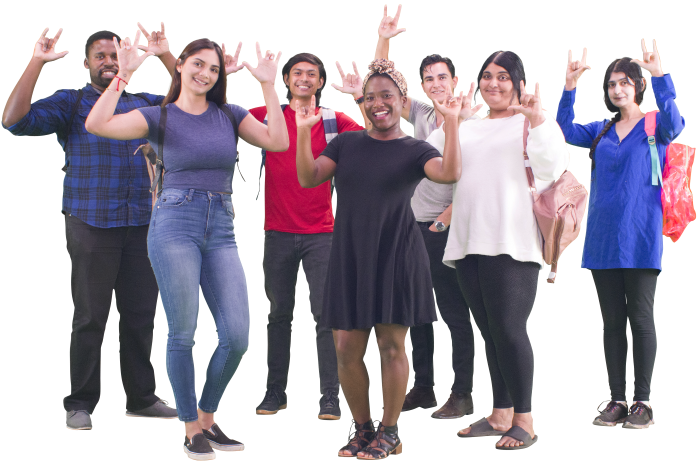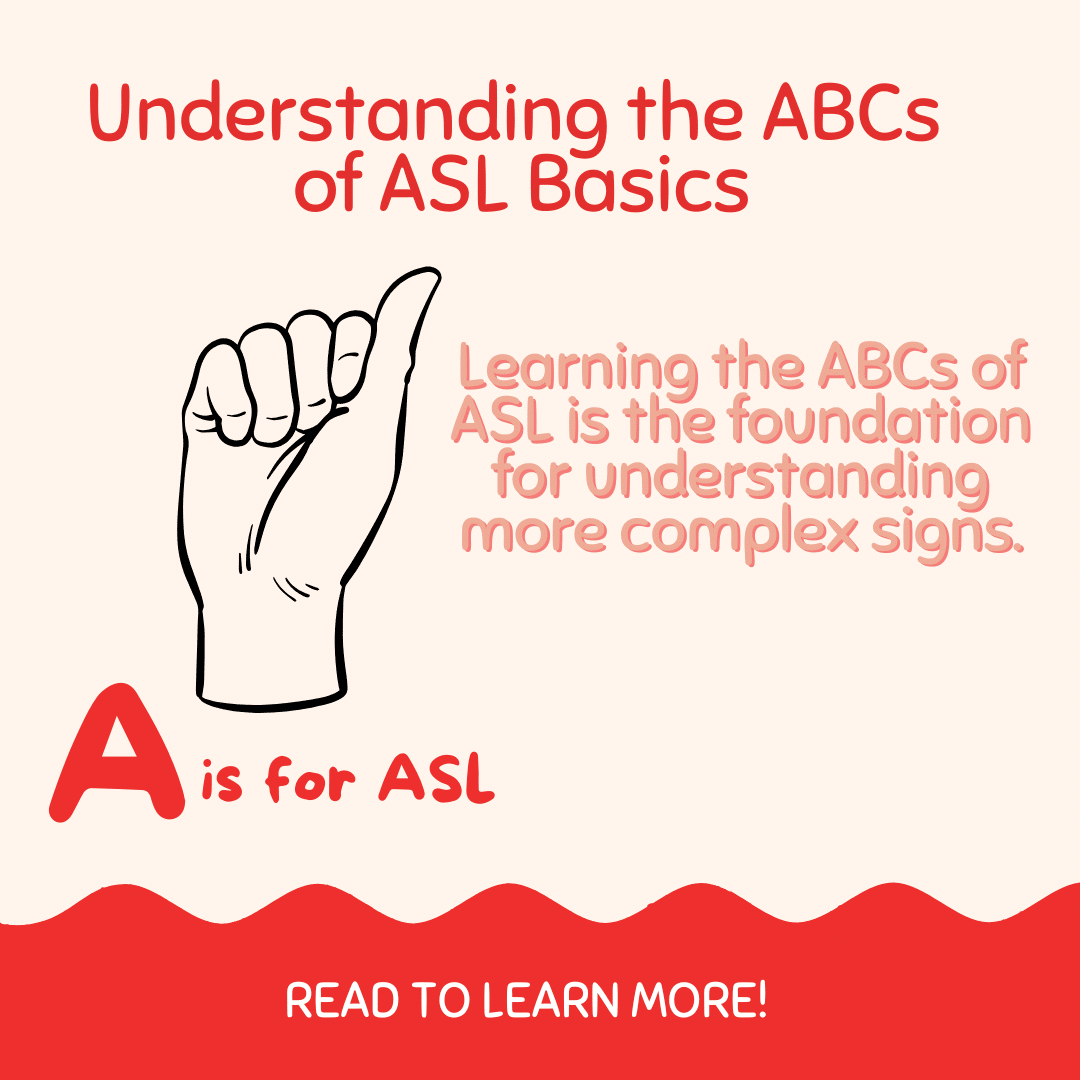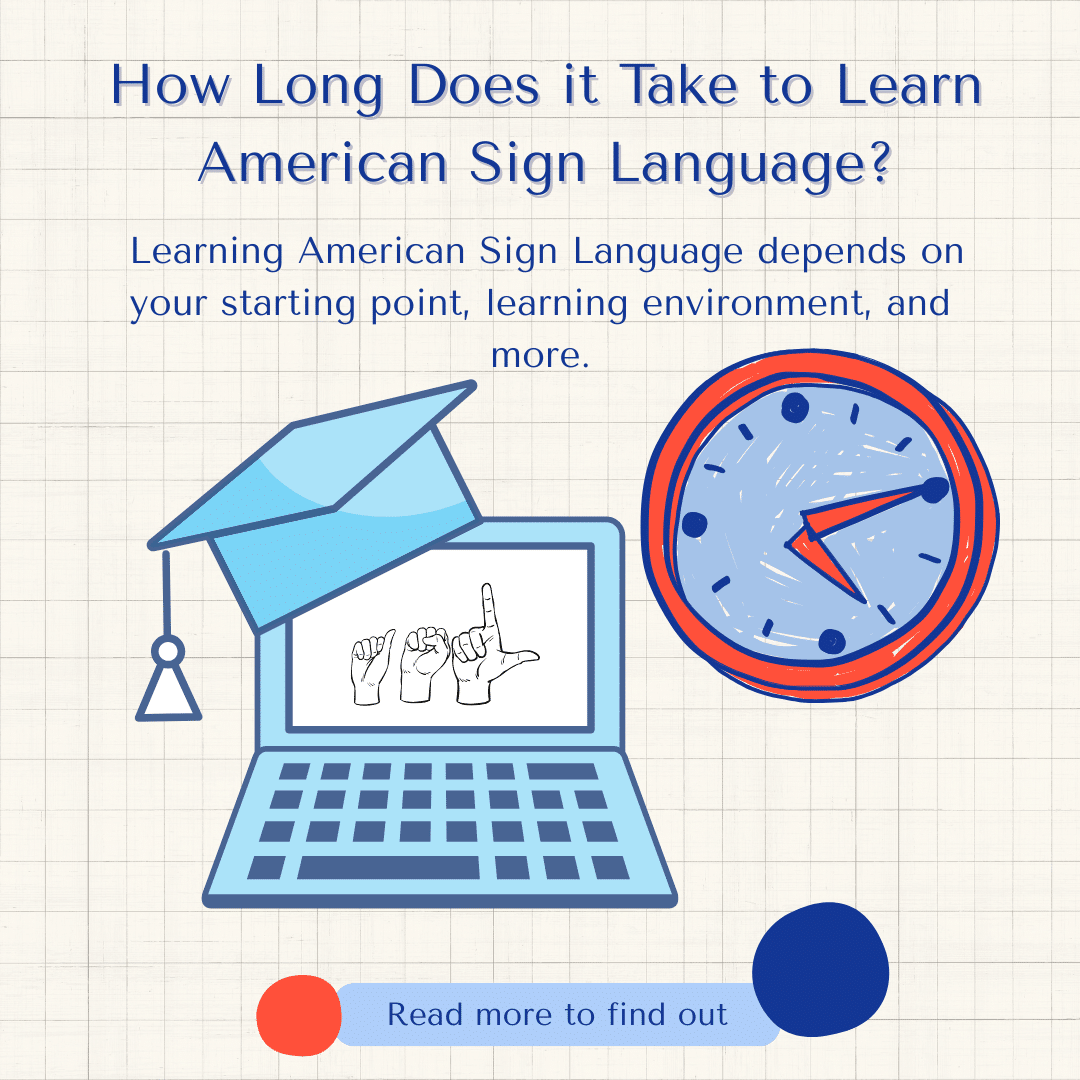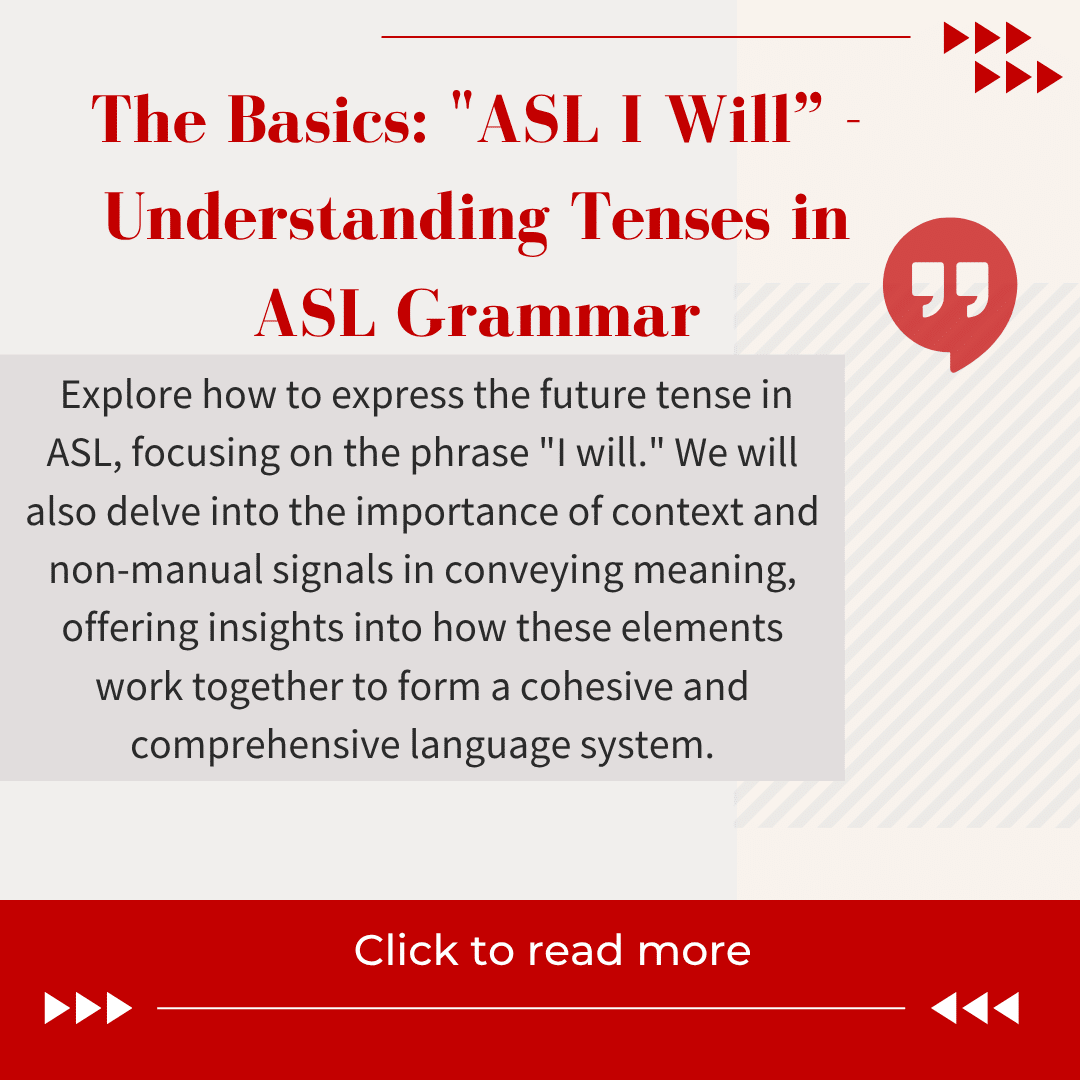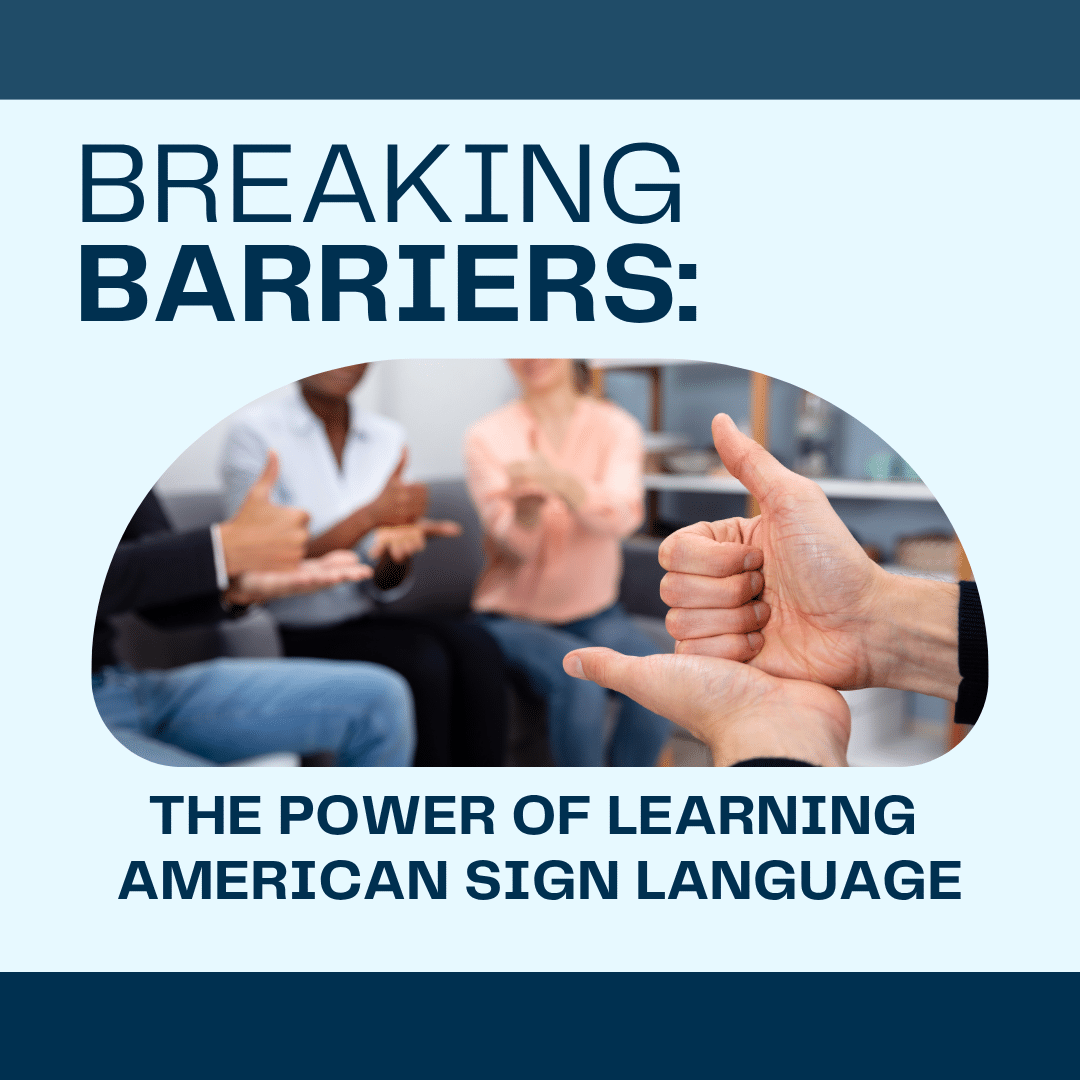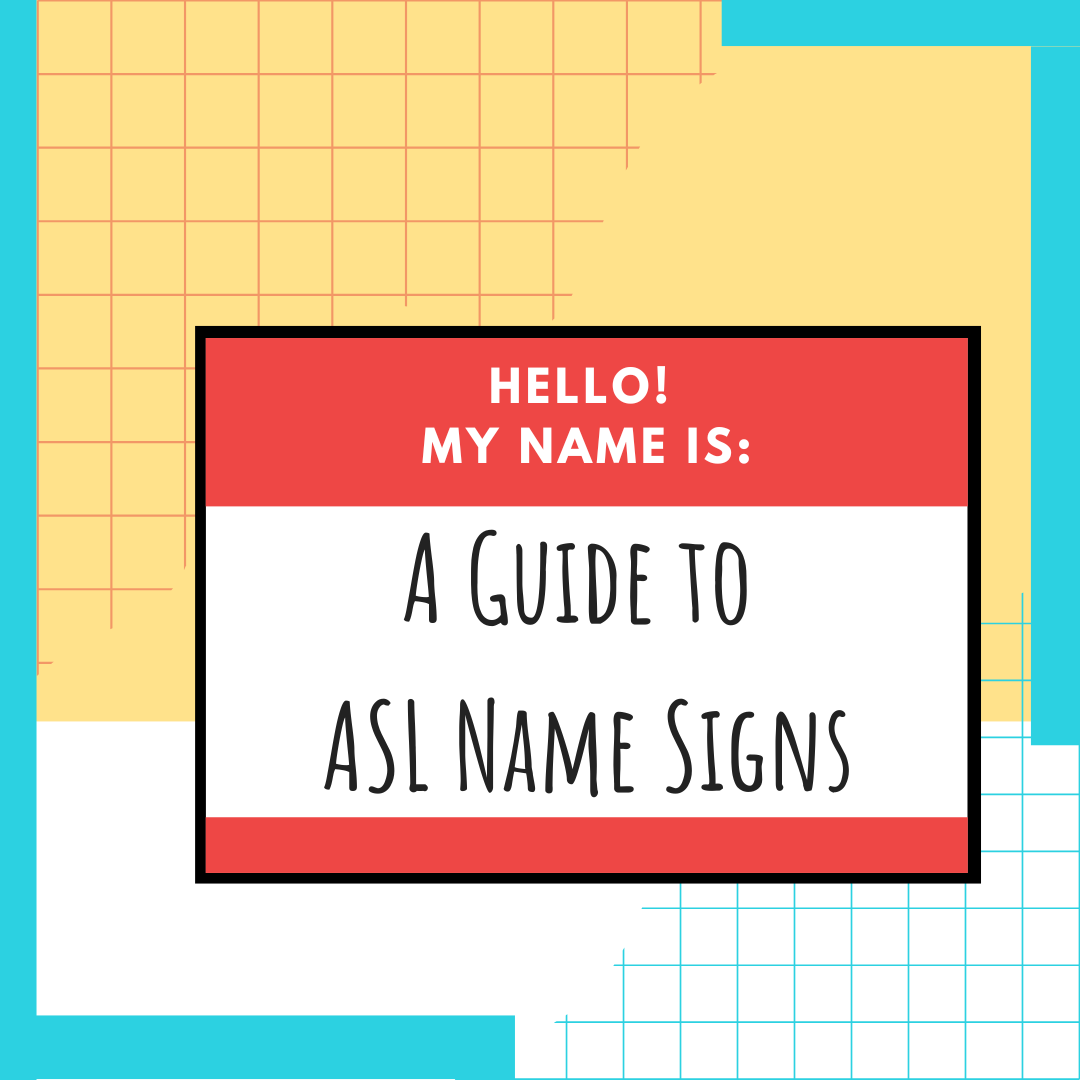
Learn American Sign Language and Unleash Your Potential While Exploring Careers
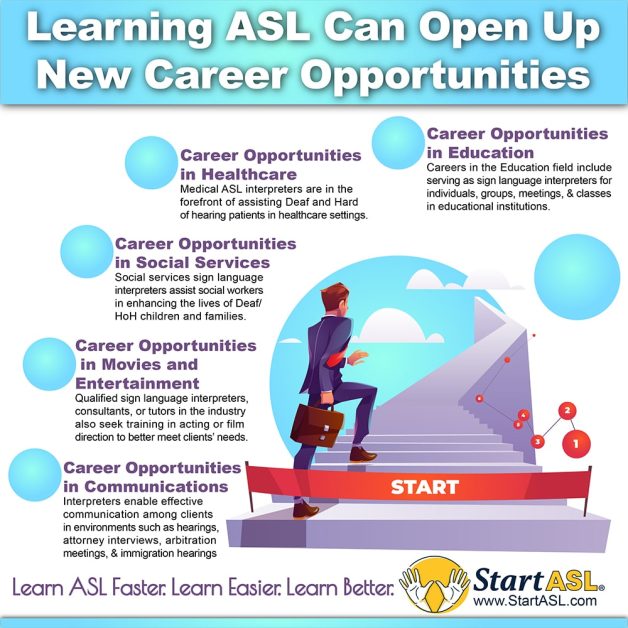
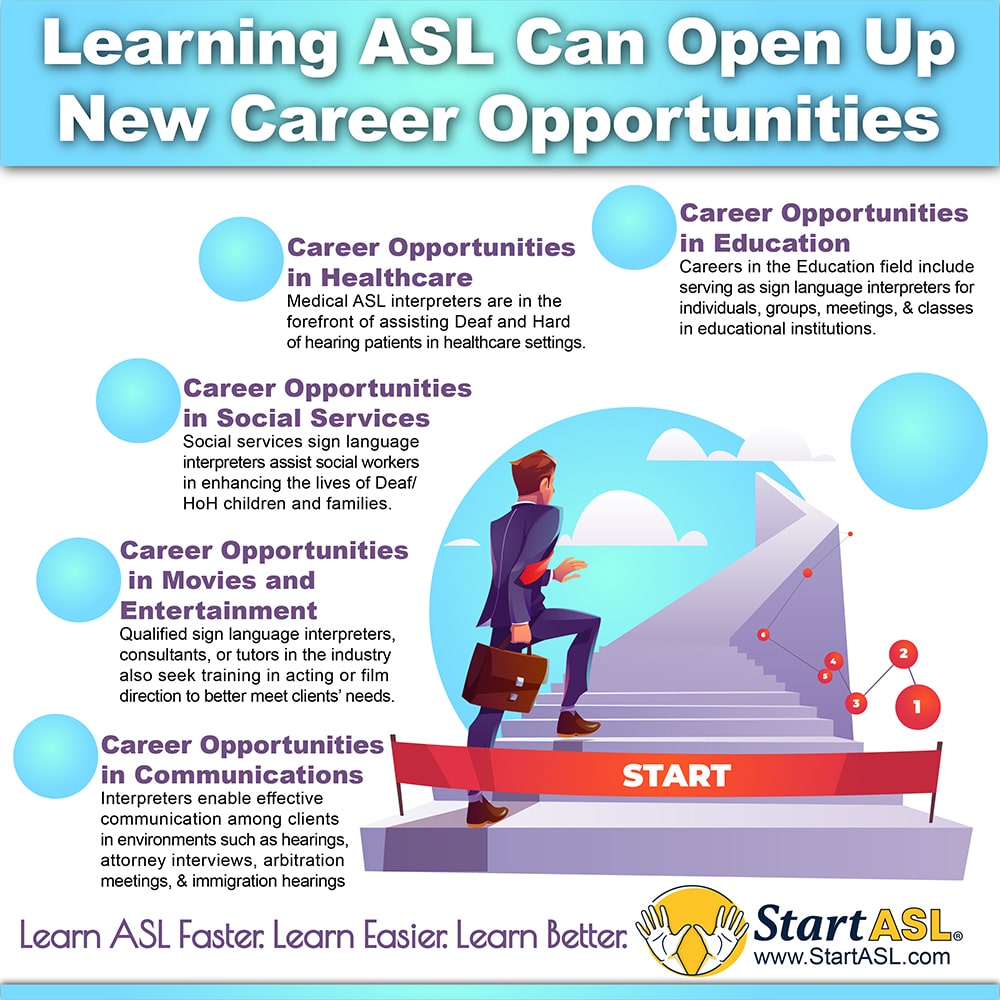
Learn American Sign Language and Unleash Your Potential
If you’re planning to learn American Sign Language (ASL), you’re part of a growing trend. The use of sign language is becoming increasingly common around the world. More and more people are employing the language as a communication tool or studying it as an academic subject. In the United States and Canada, roughly 250,000 – 500,000 people of all ages and backgrounds use sign language as their first language. In the U.S. today, ASL is the third most commonly used language after English and Spanish.
What is American Sign Language?
Sign language is a largely manual form of communication most often used by people who are Deaf or Hard of hearing. Sign language is not universal in form. Deaf or Hard of hearing (Deaf/HoH) individuals from various countries speak different sign language varieties. The gestures or symbols used in sign languages are structured linguistically with distinctive grammar and word orders. Each gesture in a sign language is called a sign. And each sign has five basic components that are used during signed communication. These include hand shape, hand position, hand movement, palm orientation, and non-manual elements such as facial expressions and body posture.
Why Learning American Sign Language is Beneficial
Since it is the most commonly used sign language in the United States, it’s essential to learn ASL for several reasons. First, being proficient in the use of ASL allows you to communicate with a broad range of hearing, Hard of hearing, and Deaf individuals. These include students in mainstream schools and Deaf school or university programs, as well as Deaf/HoH business people and residents of your community. In addition, fluency in ASL enhances the quality and depth of family interactions for hearing people who have Deaf/HoH relatives.
When you Learn American Sign Language You Open Career Opportunities

Besides these benefits, as more Deaf/HoH and hearing people learn sign language, the range of careers available to individuals with this skill is expanding. The U.S. Bureau of Labor Statistics says that the profession of a sign language interpreter is growing much more quickly than ever before, with a 19% growth rate expected over the next five years.
Besides traditional occupations such as interpreting, many other career opportunities for those who learn sign language are opening up as technology and public demand evolve. Proficiency in ASL is also required for many careers in education, communications, health care, social services, and entertainment.
-
Career Opportunities in Education
Reports from ASL programs reveal that most graduates who learn American Sign Language are finding jobs in schools, colleges, and universities. In education, the need for people who know sign language is ever-expanding.
Careers in this field include serving as sign language interpreters for individuals, groups, meetings, and classes in educational institutions. What’s more, ASL-proficient teachers are in demand at Deaf schools, special education programs, and post-secondary schools such as Gallaudet University and the National Technical Institute for the Deaf. A related career involves working with Deaf-blind students employing a tactile type of sign language.
Sign language teachers can give private lessons, conduct infants’ sign language classes, and teach college courses. Sign language instructors may also be employed in training programs for interpreters.
In the case of ASL teachers, their specialty is the principal language of the Deaf community in the U.S. and Canada. They assist both Deaf and hearing people to become assimilated into the common culture and society. They also provide Deaf students with a chance to study subjects typically only taught through spoken language.
-
Career Opportunities in Communications
Interpreters convert statements in spoken or sign language from one language into another. Effective interpreting requires listening to, comprehending, and memorizing assertions, questions, and speeches in an original or “source” language and then reproducing the content in a different or “target” language. This is most often done in only one direction, typically in the interpreter’s first or native language, but may also be done in a two-way fashion.
Interpreters enable effective communication among clients in the following environments:
· conferences and formal meetings;
· business gatherings such as exhibitions, staff meetings, and product launches;
· criminal justice proceedings such as police interrogations, courtroom hearings, attorney interviews, arbitration meetings, and immigration hearings (work conducted in these settings is known as public service interpreting); and
· community-based events and assignments.
The work of sign language interpreters may also involve translating documents into sign language. This process, known as sight translation, is the rendering of a written text into ASL or another sign language and is usually done in real-time.
-
Career Opportunities in Healthcare
Career paths for people who learn sign language are also expanding in healthcare. Medical ASL interpreters are in the forefront of assisting Deaf and Hard of hearing patients in healthcare settings. They use various communication methods, such as sign language and speech reading, also known as lip reading.
Sign language interpreters are essential to break down the language barrier and properly treat patients. And to ensure a high-quality and safe interpreting experience for Deaf/HoH patients, all professional ASL interpreters are certified by the Registry of Interpreters for the Deaf (RID).
-
Career Opportunities in Social Services
Interpreting in the social services field is essential to a community’s well-being. Social services sign language interpreters assist social workers in enhancing the lives of Deaf/HoH children and families. In-person social services ASL interpreting facilitates the vital non-verbal part of communication. Social workers often handle complex cases in which miscommunication can negatively impact an outcome. Thus, through social services ASL interpreting, agencies ensure that clients gain all the information necessary to understand the details of their cases.
-
Career Opportunities in Movies and Entertainment
In entertainment, projects are produced for the enjoyment of audiences worldwide, and effective communication is the key to success. In many such efforts, interaction with a non-hearing population or knowledge of Deaf/HoH culture is required. In these cases, those who learn American Sign Language and become interpreters, tutors, or advisors are uniquely qualified to help.
Effective interpreting in T.V., films, or the theatre demands more than just knowledge of sign language. It entails an understanding of the entertainment industry as well. So, qualified sign language interpreters, consultants, or tutors in the industry also seek training in acting or film direction to effectively meet clients’ needs.
Sign language interpreters
Sign language interpreters who function behind the camera facilitate communication among actors, directors, and others on set during meetings, at cast reads, and at rehearsals in the studio and on location.
Sign language tutors
Similar to dialect coaches, sign language tutors teach and coach actors in using sign language needed for specific roles. When they learn ASL, tutors become experts in the subtle nuances of the language. These intricacies include facial expressions and bodily movements essential for accurate communication.
Technical advisors on sign language
Individuals who learn sign language may also get jobs as advisors who work with writers, directors, script supervisors, and actors. Their job is to guarantee the proper use of the language and features specific to Deaf Culture and the Deaf/HoH community.
On camera, on stage, and voice-over interpreters
ASL interpreters may also be hired to provide their services live on camera or stage at concerts and political events. In addition, they can do voice-over work for films or T.V. shows.
Consider ways to learn American Sign Language and expand your career horizons
In light of the many exciting new occupations opening up every day for those who learn ASL, the economic and social value of the language is clearly growing. Therefore, if you choose to pursue a career path involving sign language, it could be one of the best decisions you’ll ever make.
Start Learning ASL Today!
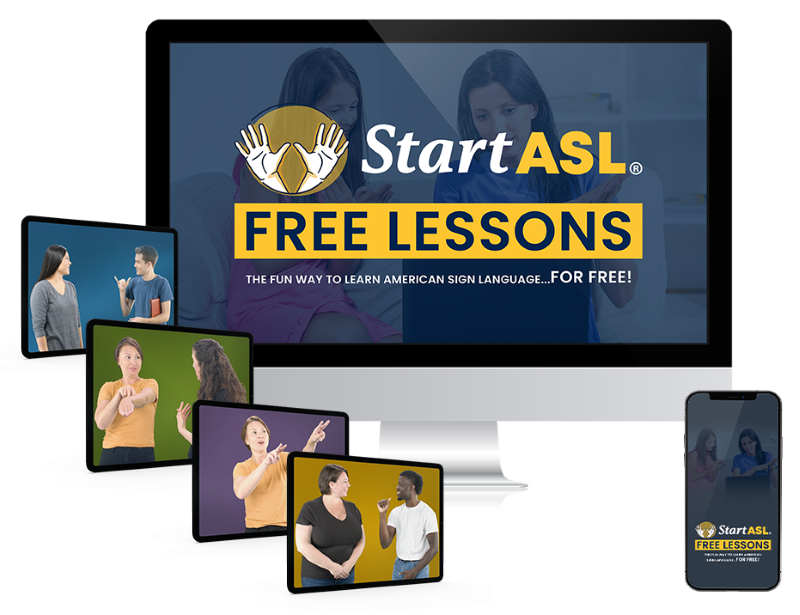 Ready to start learning real American Sign Language and not just basic signs? Do you want to be a part of the vibrant Deaf community? Check out our Free ASL 1 Course or our Complete 4-Level ASL Course options and start learning ASL today!
Ready to start learning real American Sign Language and not just basic signs? Do you want to be a part of the vibrant Deaf community? Check out our Free ASL 1 Course or our Complete 4-Level ASL Course options and start learning ASL today!
